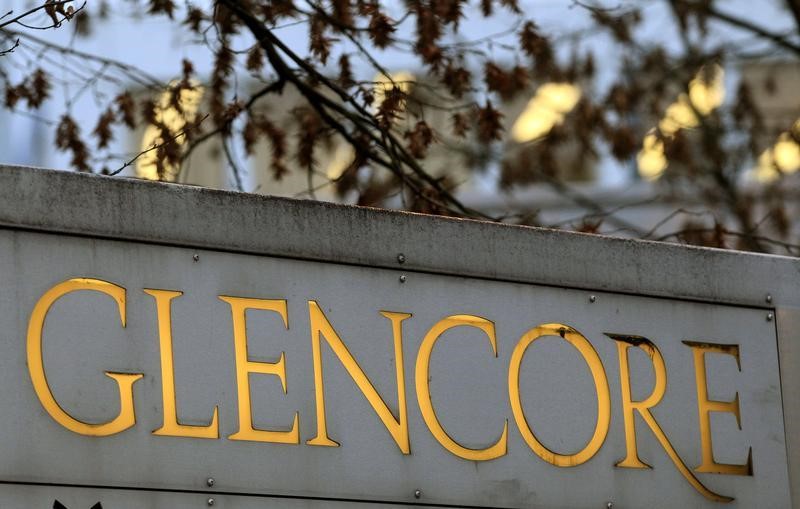By Henning Gloystein and Denny Thomas
SINGAPORE/HONG KONG (Reuters) - Shares in commodity trading firms were hit hard and a Japanese shipper filed for bankruptcy on Tuesday, in the latest signs that tumbling energy and raw material prices are triggering a sector-wide crisis.
Mining and trading giant Glencore (LONDON:GLEN) saw its London-listed shares fall 30 percent on Monday to record lows, while its Hong Kong stock slumped 27 percent on Tuesday, amid growing investor concerns over its debt levels.
Glencore's shares have fallen 87 percent since it listed in 2011, at the last high point of a long commodities boom, and its market capitalisation is now below 10 billion pounds for the first time, with more than 7 billion pounds in market value wiped out over the last week.
Asian commodity merchant Noble saw its stocks slide 15 percent on Tuesday to levels last seen at the height of the global financial crisis of 2008, with its shares trading around 40 Singapore cents apiece, giving it a market capitalisation of just S$3 billion (1.4 billion pounds).
"There is a crisis of confidence and people are continuing to de-leverage commodity stocks exposure," said Benjamin Chang, CEO of hedge fund LBN Advisers, which manages about $600 million in funds.
Both Glencore and Noble Group have seen their Credit Default Swap (CDS) prices - the cost of insuring against the companies defaulting on their debt - soar this year.
Australian energy shares also tumbled, with Santos, Origin Energy and Karoon Gas down around 8 percent on Tuesday.
At the heart of the turmoil is a rout in commodity prices, which has seen crude oil drop almost 60 percent since June last year, thermal coal fall by more than 60 percent since the last peak in 2011 and iron ore prices tumble 70 percent from the last high in 2010. Copper is also near six-year lows.
Energy and commodity prices have fallen largely because of rising output following heavy investment into new assets while prices were still high, which has increasingly clashed with slowing demand in Asia, where China's economy is growing at its slowest pace in decades.
"Over the last month, commodities have become much more vulnerable to macroeconomic headlines," said Mark Keenan, head of Asia commodities research at Societe Generale (PARIS:SOGN).
"The correlation between prices of different commodities is rising because of the influences from macroeconomic data."
SHIPPER FILES FOR BANKRUPTCY
The crisis is also hitting the shipping sector, where dry-bulk merchant Daiichi Chuo Kisen Kaisha filed for protection from creditors on Tuesday, with the news slamming shares in rival maritime firms.
Daiichi Chuo, which has suffered four straight annual losses as Chinese demand for iron ore and coal has dropped, had liabilities of around 108 billion yen (592 million pounds) as of end-March. It has a market value of just $96 million (63 million pounds).
Shares in major Japanese shipping companies tumbled on the news with Nippon Yusen losing 6.5 percent, Mitsui OSK Lines sliding 7.7 percent and Kawasaki Kisen Kaisha down 3.7 percent. The falls contributed to a 3.2 percent decline in the Nikkei 225.
Weakening commodities markets are also hitting currencies from countries that rely heavily on energy or raw material exports.
In Malaysia, a large producer of oil and natural gas, the ringgit currency fell 1 percent against the dollar on Tuesday to its lowest level since the depths of the Asian financial crisis in 1998, while in Indonesia - the world's biggest exporter of thermal coal - the rupiah is languishing near 17-year lows.
Australia's dollar, closely linked to the country's commodity exports such as iron ore, coal, oil and natural gas, has also taken a beating, losing more than a quarter of its value against the greenback since June 2014, when the current oil price rout began.
